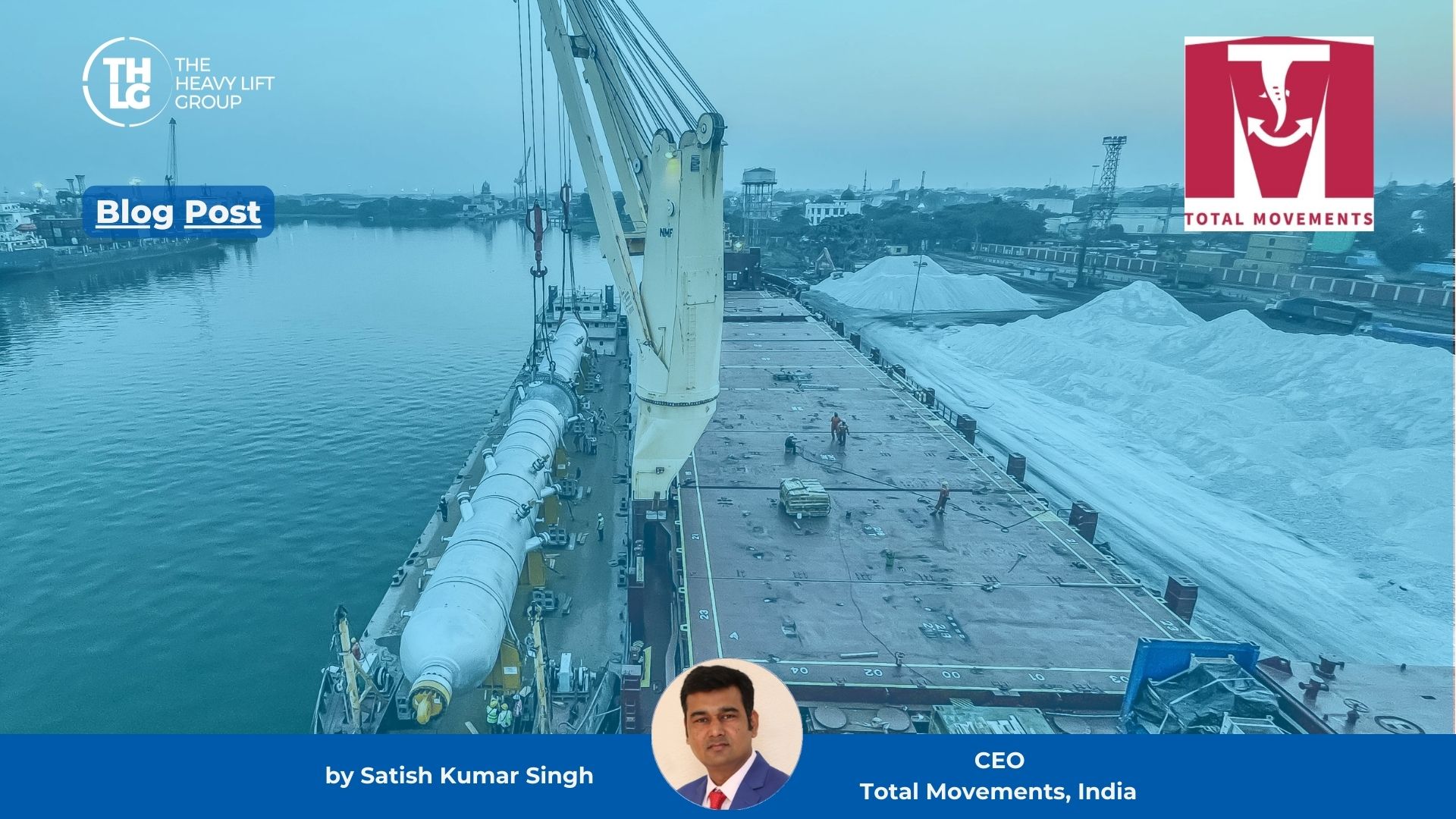
Satish started his career when he was only 19 years old. A dynamic professional with more than two decades of experience in the trade, having worked with leading logistics companies in the past. Satish has been involved in some of the most prestigious Projects in India and Overseas. He is closely associated with all Global Manufacturing and EPC Companies. For his contribution to the trade, he has been awarded the Young Logistics Professional of the year by the Prestigious EXIM Committee of India. Prior to joining Total Movements, Satish held Senior Management Positions for multinational project forwarding companies and led the business for these organizations in India and overseas.
In the dynamic world of logistics, where every move is a puzzle waiting to be solved, selling solutions for project cargo demands a complex set of multiple skills and a deep understanding of the industry and customers’ business.
With over 20 years of global experience in project logistics, helping my customers and working for Hindustan Cargo, Allcargo Logistics, MD-Deugro, CEO-Total Movements and a track record of mentoring and grooming more than 30 senior leaders in this industry, I've distilled in this blog, a few key tips and tricks to help Sales professionals in this specialized industry.
As a start, let’s take a look at some examples of project logistics cargo shipment types:
Project logistics cargo shipments are often large, complex, and require specialized transportation and handling. They may also require special permits and routing to ensure that they can be safely transported.
- Construction equipment: Cranes, bulldozers, excavators, heavy machinery
- Power generation equipment: Turbines, generators, transformers
- Oil and gas equipment: Drilling rigs, pipelines, etc
- Mining equipment: Haulers, excavators
- Transport Equipment: Metro Coaches, Airplanes, helicopters
- Wind turbines: The blades, nacelles, and towers of wind turbines
- Modular Constructions: Prefabricated Buildings, Reactors, Plants
Now let’s dive deeper and discuss some real complexities that you would face.
Selling project logistics services, comes with its share of complex challenges.
- Regulatory Hurdles as a Surprise: Be prepared for unexpected regulatory obstacles and adapt swiftly.
- Our Capabilities vs. Client’s Requirements Mismatches: Align your offerings with client needs to avoid mismatches. Be creative, innovative, organic and agile but never try to force-fit a wrong solution.
- Lack of Specific Geographical Experience: Seek local expertise to navigate unfamiliar terrains.
- At times you will face not so helpful stakeholders: Address client concerns, read between lines, do extensive primary and secondary research, and acknowledge past issues (if there were any found) to rebuild trust.
- Ever-Changing Requirements: Be flexible, well-read / well informed, prepare well and adapt to evolving client needs.
A quick list of Sales Tactics from my own quiver.
Based on my extensive experience, here are some strategies that have helped me and my team, and can help any sales professional to excel in this industry:
- Checklist Approach: Create and follow a comprehensive checklist to gather technical, commercial, and legal requirements.
- Alliances and Partnerships: Seek global and local alliances for blended or joint venture offers.
- Relationship Building: Forge strong relationships with economic buyers (the decision makers)
- Client-Centric Approach: Proactively understand your client's main points through extensive research and “genuinely care”. Never Sell Ice to Eskimos.
- Granular Documentation: Meticulously document Statements of Work to prevent expectations mismatches.
- Innovation: Continuously innovate your pitch deck, tooling and solution pack, utilising ongoing projects’ execution feedback and industry trends.
- Stay Close to Key Contacts: Always maintain close relationships with economic buyers (the decision makers) and deal champions (the project managers).
- Local Intelligence: In deals where you are new geographically, always leverage local knowledge and connections for successful deals.
Some Communication Rules that you should always follow.
- Be clear and concise: Avoid using jargon and technical terms that your customers may not understand.
- Be quick on responses: Speed is a bigger differentiator than perfection. Always respond to customer inquiries promptly.
Navigating Regulatory and Compliance Challenges.
To overcome regulatory and compliance hurdles:
- Legal Advisors: Collaborate with legal advisors in the specific geographic area. Don’t be “penny wise pound foolish” while hiring advisors.
- Documentation: Document the legal learnings so that we are better prepared for next deals
Embracing Emerging Trends and Technologies.
Stay competitive by embracing these trends:
- Data Analytics: Utilize modern tools for data analytics, primary and secondary research so that you could continuously improve your sales productivity
- Cost Optimization and Quality Assurance: Stay updated on tools and techniques for project cost optimization and quality assurance. Lower cost and better quality will boost your deal conversion ratio
- Customer Understanding: Sales professionals should mandatorily understand their customer’s business and their core KPIs and pain areas and know how to functionally help clients
Building Long-Term Relationships.
Building trust and closing deals in project logistics often boils down to genuine care and understanding:
- Genuine Care: Always prioritize “people over profit” and “relationships over contractual clauses”
- Problem Solving: Understand customer’s exact problems, break the problem down into components, understand the solutions to each of the components, then package the overall solutions, execute and then monitor the entire execution till smooth completion
Some of the resources that I refer to make myself sharper everyday.
- Daily Read: EXIM News
- Regular Reading: Project Monitor
- Books:
- "The Challenger Sale" by Brent Adamson and Matthew Dixon
- "The Logistics and Transportation Guide to Efficiency, Profitability, and Customer Service" by Paul H. Frankel
- "What the Customer Wants You to Know: How Everybody Needs to Think Differently About Sales"
